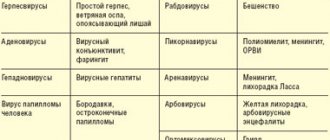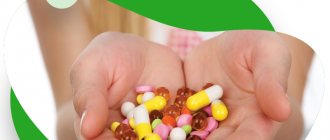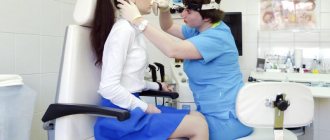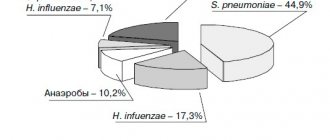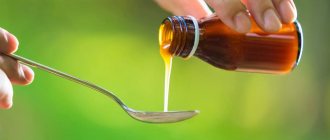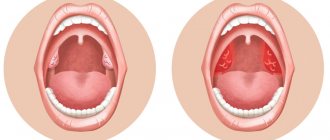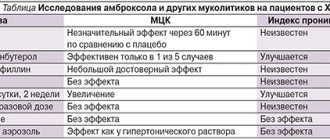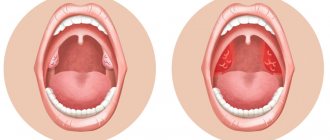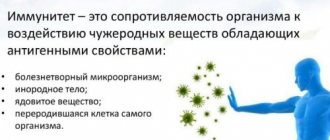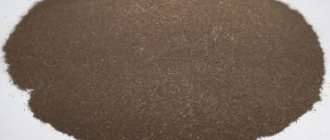As Viktor Maleev, adviser to the Research Institute of Epidemiology of Rospotrebnadzor, told RBC, effective means have not yet been created in the world and doctors use combinations of existing ones to treat coronavirus. The Ministry of Health specified which ones in the list of recommended drugs. These included hydroxychloroquine, interferon, lopinavir and ritonavir.
At the beginning of September, the Ministry of Health released the updated, eighth version of recommendations for the prevention, diagnosis and treatment of the new coronavirus infection COVID-19. Available infographics are published on the ministry’s website.
As experts note, the drugs umifenovir and recombinant interferon alpha (IFN-α) can be used to prevent coronavirus. After contact with someone infected with SARS-CoV-2, you should take hydroxychloroquine.
The material was commented on and checked by Natalya Valerievna Polenova, candidate of medical sciences, family doctor, cardiologist, pediatric cardiologist, nutritionist at GMS Clinic.
What we know about COVID-19
COVID-19 is an infectious disease caused by the coronavirus SARS-CoV-2. Discovered in China at the end of 2021, by May 15 it had infected 4.4 million people worldwide. Most of those with symptoms complain of fever, cough and difficulty breathing. Special medications and vaccines against COVID-19 have not yet been developed. However, virologist and head of the MIPT genome engineering laboratory Pavel Volchkov said that the first effective cure for coronavirus infection may appear in the fall.
In general, the Ministry of Health recommends the use of six drugs to treat coronavirus. these are favipiravir, remdesivir, umifenovir, hydroxychloroquine, azithromycin and interferon alfa.
Hydroxychloroquine and mefloquine
Doctors have been using drugs based on chloroquine for more than 70 years to treat malaria and autoimmune diseases (for example, systemic lupus erythematosus). Scientists have found that the active substance is also effective against the SARS-CoV-2 virus. In March, the Chinese holding Shanghai Pharmaceuticals provided Russia with the drug hydroxychloroquine (a derivative of chloroquine) for the treatment of COVID-19. The Ministry of Health did not identify any contraindications and allowed its use, donating more than 68 thousand packages to hospitals, despite the fact that hydroxychloroquine is not registered in Russia.
Scientists are still arguing about the validity of using hydroxychloroquine. Research by French infectious disease specialist Didier Raoult showed positive results. But the Associated Press published data from American studies. An analysis of medical records of patients treated with the drug showed that hydroxychloroquine was less effective than standard treatments.
In April, the Federal Medical and Biological Agency of the Russian Federation conducted clinical trials of mefloquine (an analogue of hydroxychloroquine approved in Russia). Scientists found out how effective and safe this antimalarial drug is. According to preliminary data from a study involving 347 patients, after using mefloquine, positive dynamics were noted in 78% of cases. The FMBA will provide its final conclusions at the end of May.
Lopinavir and ritonavir
A combination of antiviral drugs called kaletra is used to treat HIV. According to WHO, the use of the drug in combination with other medications is effective in the fight against coronavirus. At the end of January, the Ministry of Health included lopinavir with ritovinar in the list of drugs recommended for COVID-19 as antiviral therapy. As a result, the demand and sales of kaletra increased tenfold. Experts warn that uncontrolled use of the drug without a doctor's prescription can cause harm to health, including diarrhea and liver damage.
Chinese scientists have found that lopinavir and ritonavir are not effective in treating mild to moderate COVID-19. Taking medications does not improve the clinical picture; moreover, it may cause side effects. The experiment involved 86 patients, of which 34 people took a combination of lopinavir and ritonavir, and 17 patients did not receive any drugs. After two weeks, both groups showed similar results, but those taking the medications experienced side effects.
Remdesivir
Remdesivir is used to treat Ebola fever. Canadian scientists from the University of Alberta have found that the drug blocks the reproduction of coronavirus. Studies have proven the effectiveness of the antiviral agent in the treatment of MERS respiratory syndrome and SARS-CoV, the RNA structure of which is similar to coronavirus. Virologists obtained identical results in the case of SARS-CoV-2, which causes COVID-19, and concluded that remdesivir could be used for treatment. The New England Journal of Medicine also published the results of a study in which the use of the drug improved the condition of 68% of patients. Japanese Prime Minister Shinzo Abe said in parliament on April 28 that he plans to authorize the use of remdesevir to treat COVID-19. In the United States, the drug was successfully tested, and on May 2, the Department of Sanitary Inspection issued an emergency permit for its use.
Oseltamivir
The trade names of this flu medicine are Tamiflu, Nomides, Oseltamivir phosphate. Oseltamivir acts on the influenza virus in the same way as the previous drug. When using it, the illness lasts 2 days less. Oseltamivir can be prescribed to adults and children over 1 year of age. For children from one to 8 years old, it is better to use a suspension.
Possible side effects include dizziness, nausea, vomiting, and diarrhea. Contraindications to the use of oseltamivir: individual intolerance and renal failure. This flu medicine is available by prescription.
Oseltamivir
APN01
The Austrian biotechnology company APEIRON Biologics AG has begun clinical trials of the drug APN01, which was developed in the early 2000s. Scientists have discovered that the ACE2 protein, which is part of it, suppresses infections caused by viruses of the SARS group. It also helps protect the lungs during respiratory failure.
The authorities of Austria, Germany and Denmark agreed to conduct clinical trials of the drug. During the study, 200 patients with COVID-19 will receive APN01. Then virologists will evaluate the effect of the drug, and also analyze its effectiveness and safety for patients who require artificial ventilation.
Ribavirin
It is quite difficult to assess the effectiveness and safety of ribavirin. On the one hand, this drug inhibits the reproduction of the vast majority of viruses, on the other, the mechanism of action of ribavirin is not fully understood. At the end of January, the Ministry of Health recommended the use of this antiviral drug to treat coronavirus. It is prescribed to children for respiratory syncytial infection (a rare type of acute respiratory viral infection), which causes severe lung damage. The drug is used for severe influenza, for measles in children with immunodeficiency, and in combination with interferon ribavirin to treat viral hepatitis C.
However, Academician of the Russian Academy of Sciences Alexander Chuchalin criticized the recommendations of the Ministry of Health. When prescribing the drug to adults, it is necessary to take into account its teratogenicity (threat of disruption of embryonic development), therefore ribavirin is strictly contraindicated during pregnancy. Despite the fact that the drug inhibits the reproduction of many viruses, it is very toxic and causes many side effects.
At the end of March, the Ministry of Health excluded ribavirin from the list of recommended drugs for the treatment of COVID-19.
Umifenovir
Trade names: “Arbidol”, “Arpeflu”, “Orvitol”, “Afludol”. Arbidol has a controversial reputation, because once it appeared, the evidence base for this antiviral drug was insignificant. But recently, the number of studies on the effectiveness of Arbidol has increased. There is a lot of evidence that umifenovir fights influenza viruses, enteroviruses, and seasonal colds. Studies have shown that umifenovir reduces the duration of the disease by 1.7-2.65 days, while reducing the risk of complications from ARVI and influenza by 4 times.
"Arbidol" is indicated for children from 2 years of age (the drug is sold in powder for preparing a suspension). There is also Arbidol in capsules and tablets.
Contraindications include: pregnancy and intolerance to the drug. Known side effects: allergic reactions.
Umifenovir
OZON, Russia
Umifenovir is used for the prevention and treatment of influenza A and B and other acute respiratory viral infections in adults and children from 3 years of age (for the dosage form of a capsule of 50 mg), from 6 years of age (for the dosage form of a capsule of 100 mg).
As a complex therapy for acute intestinal infections of rotavirus etiology in children over 3 years of age (for the dosage form of a capsule 50 mg), from 6 years of age (for the dosage form of a capsule 100 mg). Complex therapy of recurrent herpes infection. Prevention of postoperative infectious complications. from 102
1.5 2 reviews
400
- Like
- Write a review
Ivermectin
Australian scientists from Monash University and the Royal Melbourne Hospital have discovered an antiparasitic agent that virtually destroys the SARS-CoV-2 virus within 48 hours, reducing its presence by 99%. According to researchers, the use of ivermectin will help avoid severe complications of COVID-19, as well as prevent the spread of the virus. During the experiments, ivermectin was added to cells infected with SARS-CoV-2. After 24 hours, the proportion of viral RNAs decreased by 93%, and after 48 hours, the presence of the virus decreased by 99%.
A single treatment with ivermectin can reduce the virus by 5 thousand times in 48 hours, scientists say. The drug is approved by WHO.
Kagocel
Kagocel does not have a direct effect on viruses, but stimulates the body to an immune response. The drug is suitable for the treatment and prevention of acute respiratory viral infections and viral infections of the upper respiratory tract. Suitable for children from 3 years old. The full course of treatment with Kagocel is 4 days. But the duration of treatment can be adjusted depending on when the patient started treatment and the age of the patient.
How to take: children 3-6 years old take 1 tablet in the morning and evening for the first 2 days, the remaining 2 days take one tablet once; for children over 6 years of age, the daily dose is increased: the first 2 days, 1 three times a day. On days 3 and 4, the drug is taken 2 times a day. The full treatment course is 10 tablets. Adults in the first 2 days - 3 times a day, 2 tablets, then for 2 days, 1 tablet three times a day. The course of treatment is 18 tablets.
Contraindications: pregnancy and breastfeeding, children under 3 years of age, lactase deficiency and lactose intolerance, glucose-galactose malabsorption; hypersensitivity to the components of the product.
Nelfinavir
Nelfinavir is used in combination with other antiviral drugs to treat HIV. The study was carried out by Japanese scientists. According to the data obtained, the drug is able to block the reproduction of SARS-CoV-2. Virologists studied nine similar drugs and found that nelfinavir is effective even in small doses. Therefore, it is recommended to include it in the list of potentially effective drugs for the treatment of COVID-19.
What to do while there is no vaccine
- wear medical masks when visiting public places;
- on the street and in crowded places, maintain a distance of at least 1.5 m from others;
- avoid contact with people who have been exposed to the virus;
- stay at home if possible;
- wash your hands thoroughly with soap;
- use a disinfectant with an alcohol content of at least 60%;
- do not touch your face;
- monitor hygiene in the house.
How to distinguish ARVI from influenza?
ARVI (or, as people say, a cold) is, one might say, a common occurrence. Doctors say that children with normal immunity can get ARVI up to 6 times a year, adults - up to 4. But influenza is a more serious disease, which is fraught with various complications (usually respiratory failure and viral pneumonia). Therefore, if you suspect you have the flu, consult a doctor immediately.
IMPORTANT!
The antiviral drugs presented below are effective if taken within the first 48 hours of the onset of ARVI or flu symptoms.
How to distinguish influenza from ARVI
Photos from open sources
Expert commentary
What medications, besides antiviral drugs and antibiotics, are recommended for the treatment of COVID-19 by the Russian Ministry of Health?
According to the eighth version of the resolution “Prevention, diagnosis and treatment of new coronavirus infection (COVID-19)” of the Ministry of Health of the Russian Federation, patients infected with the SARS-CoV-2 virus should receive pathogenetic and supportive symptomatic therapy if necessary. The first group of drugs includes, first of all: glucocorticosteroids (GCS), interleukin inhibitors (tocilizumab, canakinumab), anticoagulants (enoxaparin, fraxiparin).
Glucocorticosteroids are able to prevent the release of cytokines, substances responsible for the development of a violent inflammatory reaction, which can lead to a very dangerous complication “cytokine storm”. GCS may be useful in the treatment of severe forms of COVID-19 to prevent irreversible tissue damage and uncontrolled multiple organ failure.
It should be noted that for mild to moderate severity of the disease, that is, for patients not receiving oxygen, GCS are not indicated. So there is not the slightest need to buy hormones from pharmacies for use at home.
Drugs from the group of cytokine inhibitors are used when the lung parenchyma is damaged by more than 50%, that is, stage CT-3, CT-4 in combination with signs of increasing intoxication: long-term fever, very high levels of inflammatory markers in the blood.
In groups of patients at high risk of thrombus formation, for the prevention of so-called coagulopathies, it is advisable to prescribe anticoagulants used subcutaneously. Evidence of the effectiveness of oral anticoagulants for COVID-19 is not yet sufficient, however, if the patient was taking them before the disease, the drug should be continued until then. High-risk groups include patients with cardiovascular pathology, diabetes, and obesity.
How is symptomatic treatment of coronavirus carried out?
Drugs for symptomatic treatment of COVID-19 include antipyretic drugs, antitussive drugs that improve sputum discharge. Paracetamol is recognized as the safest antipyretic drug.
There is no need to wait until a certain level of fever is reached before using an antipyretic drug. In the presence of headache and muscle pain, poor tolerance to symptoms of intoxication and fever, it is possible to use drugs even at a relatively low body temperature.
What can you take to prevent coronavirus?
The most important characteristics of a diet that helps strengthen the immune system are: adequate daily calorie intake, sufficient intake of protein and a number of micronutrients, especially vitamin C, D, A, iron and zinc, increased intake of dietary fiber and, if necessary, probiotics, maintaining water balance. According to the clinical recommendations of the Russian Association of Endocrinologists, to prevent vitamin D deficiency in adults aged 18-50 years, it is recommended to receive at least 600-800 IU of the vitamin per day. People over 50 years old - at least 800-1000 IU of vitamin D per day.
There are some indirect indications of zinc's potential antiviral effect against COVID-19, although their biomedical relevance remains to be explored. Based on recent data on the clinical course of the disease, it appears that zinc may have protective effects against COVID-19 by reducing the incidence of pneumonia, preventing ventilator-induced lung injury, and improving antibacterial and antiviral immunity, especially in older adults.
Ascorbic acid (vitamin C, AA) takes part in such vital physiological processes as hormone production, collagen synthesis, stimulation of the immune system, etc. The latter effect can be due to both the direct antiviral effect of AA and its anti-inflammatory and antioxidant properties.
Ergoferon
A complex drug for the treatment and prevention of seasonal colds. In addition, it has an anti-inflammatory and antihistamine effect, but is not used as an independent antihistamine.
Ergoferon contains affinity-purified antibodies to human interferon gamma, affinity-purified antibodies to histamine and affinity-purified antibodies to CD4. CD4 cells are white blood cells responsible for the body's immune response to bacterial, fungal and viral infections.
Thus, the action of ergoferon is based on a triple effect on the body and activation of protective functions in three directions. Antibodies to histamine interact with histamine receptors, antibodies to interferon-gamma have an antiviral effect. Antibodies to the CD4 cell receptor enhance the antiviral effect of ergoferon. The triple action provides a complex anti-edematous, anti-inflammatory and antihistamine effect, which distinguishes it from other antiviral drugs.
It has a wide range of indications for prevention and treatment:
- influenza types A and B;
- ARVI,
- adenovirus, parainfluenza virus, respiratory syncytial virus
- herpetic infections
- rotavirus and enterovirus infections
- meningococcal meningitis, hemorrhagic fever with renal syndrome, tick-borne encephalitis;
- acceptable in the complex treatment of pseudotuberculosis, whooping cough, pneumonia of various types and origins
How to use:
Ergoferon is available only in tablets, but is suitable for use in children over 6 months. The tablet should be kept in the mouth without swallowing until completely dissolved. In infants, it is necessary to dissolve the medicine in a tablespoon with water or breast milk. On the 1st day, take 8 tablets: 1 every 30 minutes for 2 hours, then another 1 tablet 2 times a day. Next, ergoferon is taken 1 tablet three times a day until complete recovery.
Contraindications:
individual intolerance
